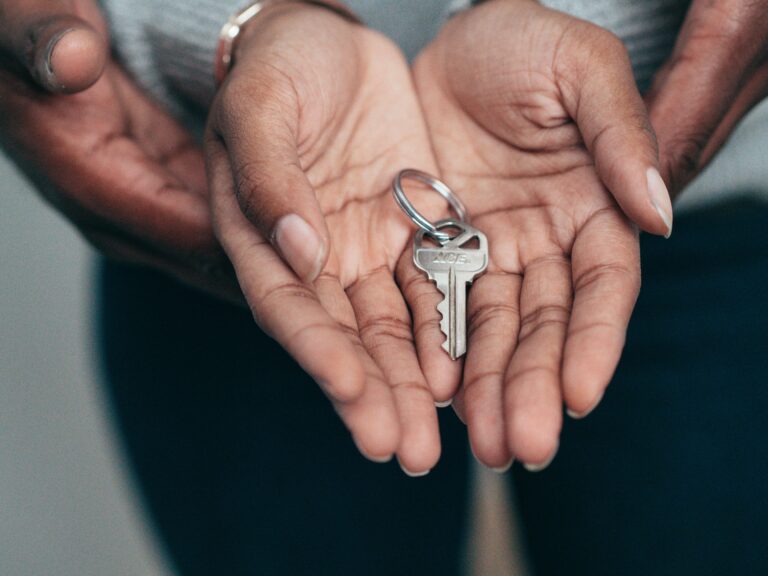
Buying your first home is an exciting milestone, but navigating the financial complexities of a mortgage can be daunting. A key consideration in this process is securing the best possible mortgage rate. Even a small difference in rates can significantly impact your monthly payments and the overall cost of your home loan.
For first-time homebuyers, understanding how mortgage rates work and how to secure the most favorable terms is essential. This guide breaks down what you need to know about mortgage rates, what’s considered a “good” rate, and actionable tips to ensure you’re getting the best deal.
What Is a Mortgage Rate for First-time Homebuyers?
A mortgage rate is the interest charged by a lender for providing a home loan, expressed as an annual percentage. It’s one of the most critical factors influencing the affordability of your home.
Types of Mortgage Rates
Mortgage rates can vary depending on the loan type:
- Fixed-Rate Mortgages: The interest rate remains constant for the life of the loan, ensuring predictable monthly payments. This is a popular choice for first-time buyers who value stability.
- Adjustable-Rate Mortgages (ARMs): These start with a lower fixed rate for an initial period (e.g., 5 or 7 years) before adjusting annually based on market conditions. While the initial rate may be attractive, future increases can pose a risk.
Understanding the difference is key to determining which option aligns with your financial goals and risk tolerance.
How Are Mortgage Rates Determined?
Mortgage rates aren’t arbitrarily assigned; they’re influenced by multiple factors, including:
- Market Conditions
Mortgage rates fluctuate with the economy.
- Economic Growth: During periods of economic expansion, rates tend to rise due to increased demand for loans and higher inflation.
- Economic Slowdowns: Rates typically fall during recessions or economic uncertainty as the Federal Reserve lowers interest rates to stimulate borrowing.
- Credit Score
Your credit score is a key indicator of your financial health. Lenders use it to assess risk:
- Excellent Credit (740+): You’re likely to qualify for the lowest rates.
- Good Credit (700-739): You’ll still receive competitive rates but may miss out on the very best.
- Fair Credit (640-699): Rates will be higher, potentially adding thousands to your total loan cost.
- Loan Amount and Down Payment
The size of your loan and your down payment also influence your rate:
- A larger down payment reduces lender risk, often resulting in a lower interest rate.
- Loan amounts that fall outside standard limits (known as jumbo loans) may have higher rates.
- Loan Type and Term
The loan type (e.g., conventional, FHA, VA) and term length (e.g., 15 or 30 years) impact rates:
- Conventional Loans: Typically require higher credit scores but offer competitive rates.
- FHA Loans: Designed for lower-credit borrowers, these may have slightly higher rates but more lenient terms.
- VA Loans: For eligible veterans, these loans often feature lower rates with no down payment requirement.
What Is a Good Mortgage Rate for First-Time Buyers?
A good mortgage rate depends on a combination of factors, including market conditions and your personal financial profile. Here’s what to consider:
Current Market Rates
- Stay informed about average mortgage rates. As of 2024, rates for 30-year fixed mortgages hover between 6% and 7%, while 15-year fixed loans may offer lower rates around 5.5% to 6%.
- A rate below the market average can generally be considered favorable, especially if your financial situation supports it.
Affordability for Your Budget
- A good rate isn’t just about the percentage—it’s about how the monthly payments fit within your budget.
- Use a mortgage calculator to estimate how different rates affect your payment and ensure you have room for other expenses like property taxes, insurance, and maintenance.
Rate vs. Loan Features
- Sometimes, a slightly higher rate is worth it if it comes with better terms, such as lower closing costs or flexibility in repayment.
How to Secure the Best Mortgage Rate
Finding the best rate involves preparation, research, and negotiation. Here are some steps to take:
- Improve Your Credit Score
Lenders reward borrowers with high credit scores. Steps to improve your score include:
- Paying bills on time and in full.
- Reducing your credit utilization ratio (ideally below 30%).
- Avoiding new credit inquiries in the months leading up to your mortgage application.
- Save for a Larger Down Payment
While some loan programs allow as little as 3% down, a larger down payment (e.g., 20%) can:
- Lower your interest rate.
- Eliminate private mortgage insurance (PMI), reducing your monthly costs.
- Shop Around
Different lenders offer different rates, so it’s essential to compare:
- Banks and Credit Unions: These may offer competitive rates and personalized service.
- Online Lenders: Many online lenders provide lower overhead costs, leading to better rates.
- Mortgage Brokers: A broker can help you find the best rates across multiple lenders.
- Lock in Your Rate
Once you find a good rate, consider locking it in. Rate locks typically last 30-60 days and protect you from market fluctuations while finalizing your loan.
- Explore Discount Points
Discount points allow you to “buy down” your interest rate by paying more upfront. Evaluate whether the upfront cost is worth the long-term savings based on how long you plan to stay in the home.
Fixed vs. Adjustable Rates: Which Is Right for You?
The choice between a fixed-rate and adjustable-rate mortgage (ARM) depends on your financial goals and timeline:
Fixed-Rate Mortgages
- Best for buyers planning to stay in the home long-term.
- Offers stability and predictability with consistent payments.
Adjustable-Rate Mortgages (ARMs)
- Ideal for buyers planning to move or refinance before the rate adjusts.
- Initial rates are typically lower than fixed rates, but there’s a risk of increases later.
Questions to Ask Lenders
When discussing options with lenders, ask:
- What is the annual percentage rate (APR)? This includes the interest rate and additional fees.
- Are there any fees associated with this loan? Understand closing costs, origination fees, and other expenses.
- Can I lock in my rate? If so, for how long?
- What are the payment options? Some lenders offer flexibility in how payments are structured.
The best mortgage rate for first-time buyers isn’t just about finding the lowest number—it’s about securing a loan that fits your budget, meets your needs, and sets you up for long-term financial success.
By improving your financial profile, researching your options, and asking the right questions, you’ll be well-equipped to find the ideal mortgage for your first home. Remember, this is more than just a financial transaction—it’s a key step toward achieving your dream of homeownership.





